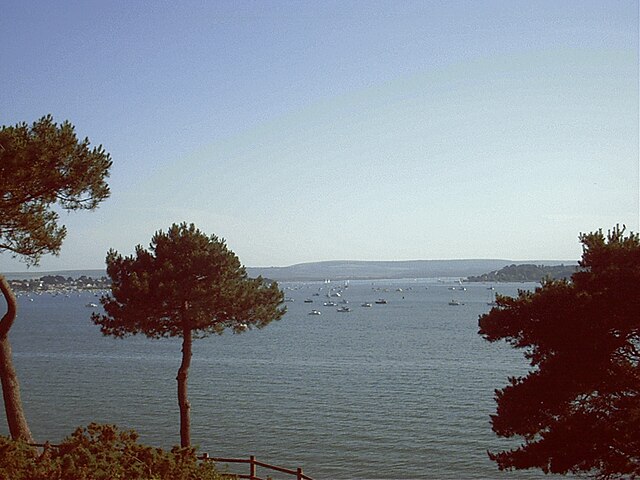Poole Harbour is a large natural harbour in Dorset, southern England, with the town of Poole on its shores. The harbour is a drowned valley (ria) formed at the end of the last ice age and is the estuary of several rivers, the largest being the Frome. The harbour has a long history of human settlement stretching to pre-Roman times. The harbour is extremely shallow, with one main dredged channel through the harbour, from the mouth to Holes Bay.
Aerial view of the harbour entrance, looking west-north-west. The large island just inside the entrance is Brownsea Island; to its left are Furzey Island and then Green Island.
The Poole Logboat was excavated from Poole Harbour and is over 2,000 years old. It is on display in Poole Museum.
View across the harbour looking west from Lilliput, Poole
Green Island, one of the islands within Poole Harbour
A harbor, or harbour, is a sheltered body of water where ships, boats, and barges can be moored. The term harbor is often used interchangeably with port, which is a man-made facility built for loading and unloading vessels and dropping off and picking up passengers. Harbors usually include one or more ports. Alexandria Port in Egypt is an example of a harbor with two ports.
New York Harbor and the Hudson River in the foreground; the East River in the background.
Capri harbor, Italy seen from Anacapri
Koyilandy Harbour, Kerala, India
The tiny harbor at the village of Clovelly, Devon, England








